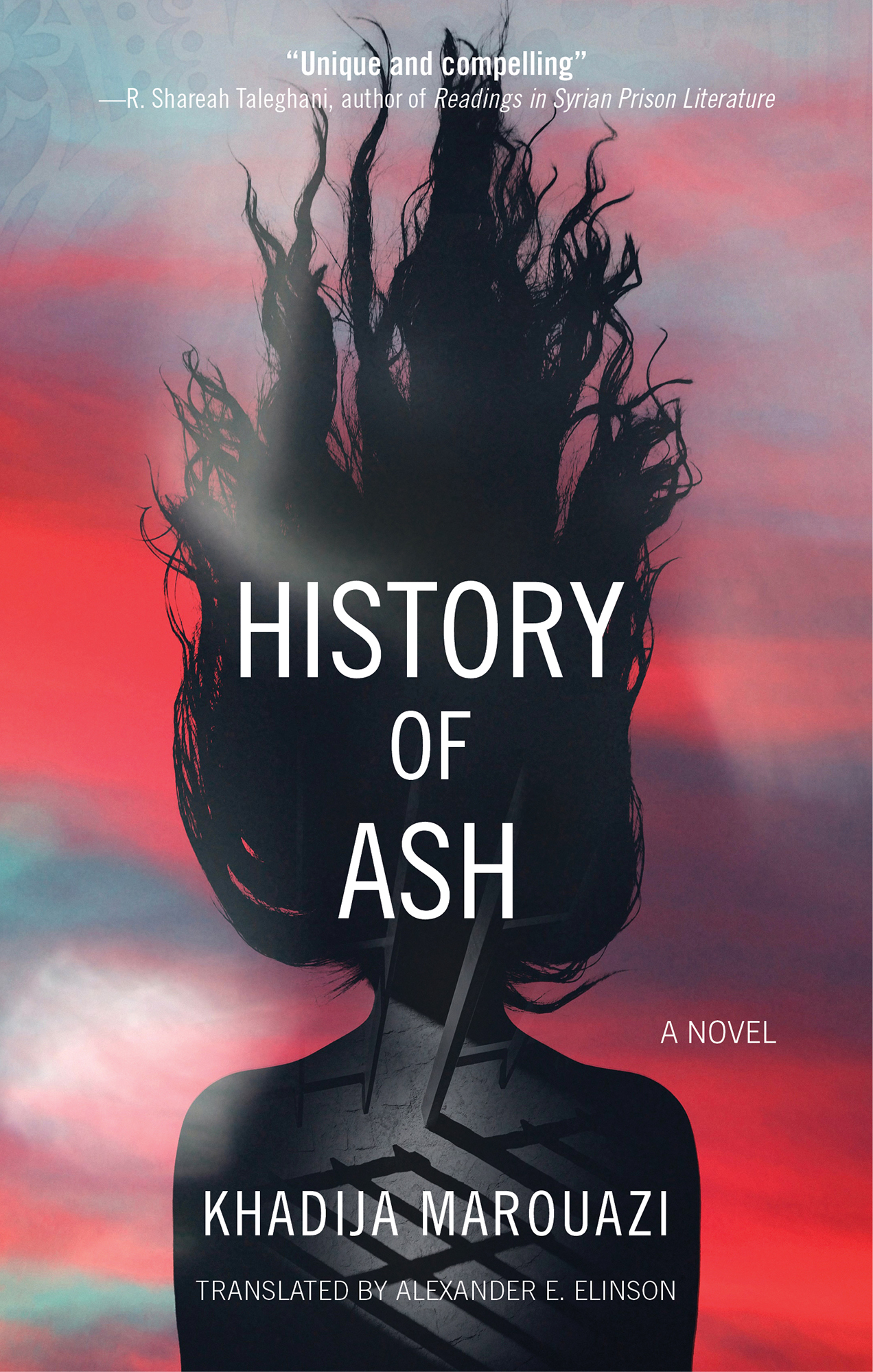
The Sea . . . the sea. I will only turn toward the sea. It is what my soul has held onto for these twenty years. I will not turn toward the prison gate. Whenever Mama would visit, she would insist, and when she no longer came, she would pass along this advice through Leila or other friends: “Mouline, don’t turn toward the prison. That way you won’t go back. That’s all I ask. Don’t turn toward the prison gate!”
Then she would add these words—which came to sound like the invocation of God’s name as one year followed another—with a sense of suffering and expectation that continues to eat away at me: “Whether I’m alive or dead, don’t turn toward the prison gate. Push forward, and don’t look back. That way, you’ll never return.”
But what remains of life after twenty years spent in a cement chamber? Twenty years swallowed up by the cold walls and the echo of slamming prison doors. What life remains other than this trifle which will throw us directly from prison into the hospital, where we’ll talk about it for the rest of our lives? After the walls have sown their long-lasting poisons in us so we can harvest those illnesses all at once, those illnesses that had been planted in us bit by bit. I will turn my gaze from the prison gate and face forward, toward the sea. Because Fate insisted on taking all of Mama’s other wishes from her, I had no choice but to grant her this one request. I will not turn back, but how will I know which way the sea is? When we entered Gharbia on that cold dark night, we entered its prison, not its civic space. We entered its prison cells, not its streets. We arrived in groups over the course of twenty-one days. We were brought in at night so we wouldn’t be noticed. Would I know the way to the sea? Poetry can often act like a compass that keeps you from getting lost. This is where Salah once said,
A prison
A graveyard
A sea
from prison
to prison, I will always flee . . .
Salah said it when the sea was far away. I took two more steps. The graveyard seemed to be spread out over a hillside, with us on the plateau, trapped there like the Prophet Jonah in the belly of the whale. But how did Salah know the geography of this place? Out of all of us, he was the one who had his face pressed up against the prison van’s window when it took us to the hospital. Salah looked out the window, smiling like a child who had lost his toy and was determined to get it back. He looked out and smiled because his toy appeared before him, just a stone’s throw away, just outside the window. It might have been because he remained there transfixed and saw a funeral procession carrying a corpse that he knew the graveyard was near the prison. As for the sea, no one could not know it was there. Even though its dizzying light continues to envelop me, it was a close friend through fall and winter, its waves crashing down, echoing and knocking on the cell doors. That’s how all beautiful things are in my country . . . they only come as echoes and rust. I don’t know how my connection to it began, but I am sure that even before I get out, I won’t love it until it has expelled all the bodies it swallowed up over the summer. I offer myself to it in the fall, and commune with it in the winter. Twenty years in the central prison, and the sea stood by with all its strength, especially when the frost began to breathe its poison into our joints. It was an intimate friend; particularly at night when silence blanketed that desolate place; it would creep in, whispering. The sea is a woman when there is no woman at hand . . . but now, it is practically still. Scattered rain falls here and there. I raise my face up into it as if performing my ablutions.
When I was called in to see the prison warden, I was surprised by their decision to release me one week shy of completing my twenty-year sentence. Of course, Leila wouldn’t be waiting for me. I knew that measures had been taken to keep the press and our comrades away, what with the feverish welcome they would bring along with them. However, their measures, no matter how skillfully devised, were as fragile as a pistachio nut. Families, friends, and members of the press would be lined up in front of the prison gate for weeks before the appointed time, waiting for the release of their loved ones. But Leila would come for her regular visit and wouldn’t find me. Only she knows how much I love the sea. She would often follow me down the corridor asking,
“Me or the sea?”
“Both of you at the same time.”
“Then I’ll hang back for a bit and let the sea visit you.”
I grab her wrists and lift them up a little, pressing them to my chest, hot with the thirst of many years. Leila doesn’t know that I could not love the sea without her. Leila is always moist. Every time she visited, I would embrace her. I would kiss her hair which smelled of the sea.
I walked to the middle of the beach, a steady rain falling on my face. If Leila were here, the drops would look like a string of precious stones scattered across her marble-like neck. I leaned against a mound of sand I had formed with my hands. I moved them back and forth a little. The mound dissolved as soon as the water came up to the sand. I felt spent. I tried again but didn’t get much further than I did the first time. I leaned over to pull a half-buried oyster out of the sand. Gently, I brushed it off and held it up to my nose. It smelled like Leila. Slowly, I did it again as if I were a drowning man rising up out of the water to fill his lungs with air. I studied the oyster carefully, wiping it off again, and put it to my ear. I pressed on it a little bit, then again, when suddenly, I was struck by a loud sound . . . something like scraping on wood. No! Rather, on leaves. I felt my body grow heavier. Slowly, I lowered myself. The blood ran hot to my ears. I let the sand grab me. The oyster’s echo still rang in my ear and filled it, taking on the echo of those wasted years, there, where my body lay a great distance from me. I put my hand—my fingers on my leg and couldn’t tell whether or not they were mine. My thighs. My legs. My waist. Everything was dry and withered. It was the dryness that scared me. Every time I placed my hand on a part of my body, it was as if I were putting it on a piece of damp wood, until, after three days when the fog of the blindfold began to lift, I discovered that I was one of the walking dead. My body was becoming frighteningly emaciated. My discoveries came in fits and starts. I continued to break down under torture. I was dizzy all the time. As soon as I woke up and touched my body, I broke down again. Then I would disappear into a slumber and wake up to the sound of something scratching and scratching underneath my body which was stretched out on a bed of cardboard. The scratching continued, which got to me. The sound began to shoot from under this bed directly to my ear. Violently, and with considerable effort, I pulled my body up. I grabbed the cardboard and shook it a little hoping that the source of the scratching sound would fall from one of its folds. I got down on the floor to look into some of the holes there. In the right-hand corner, I discovered a burrow. I threw myself to the opposite corner. There was a tail curling up into it quick as a flash of lightning. I held my breath. The tail disappeared inside, and then the head appeared. It was a mouse! With what remained of my strength, I rushed to the door and started to bang on it. I was screaming at the top of my lungs when the Hadj (all the guards had us call them “hadj”) came over to my cell. He took his keys out. I didn’t know what he was expecting me do. I didn’t know what I was expecting myself to do after all this screaming. I surprised him with a request to go to the toilet.
***
Buy History of Ash here: Amazon
Excerpt from HISTORY OF ASH published by Hoopoe Fiction, an imprint of American University of Cairo Press. Copyright © 2023 by Khadija Marouazi.


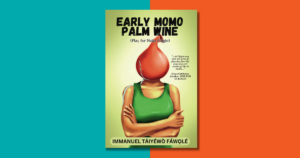
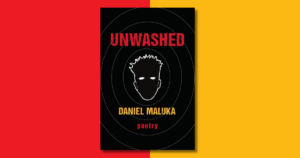


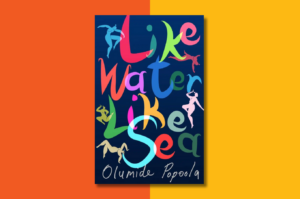
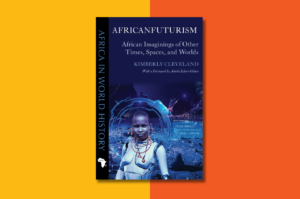

COMMENTS -
Reader Interactions